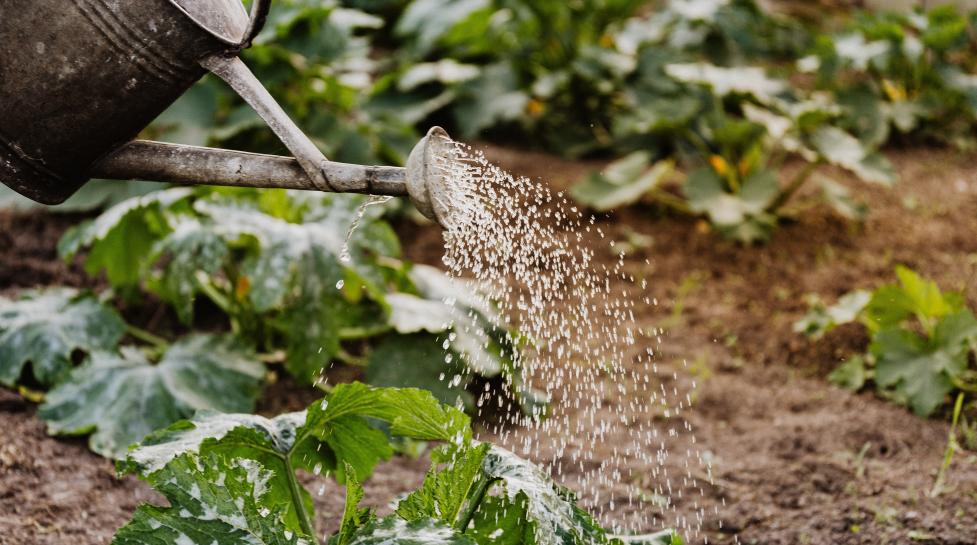A rainy year has kept Boulder’s water usage below average, but approaching the future with an eye on conservation is key.
In 2023, Boulder experienced one of its rainiest springs on record, with about 12 inches falling in May and June. All that extra water has impacted Boulder’s water use this spring. Water use for June 2023 was 37% lower than June 2022, and 35% lower than the five-year average for June. Through July 2023, water use was 19% lower than 2022.

Rainbow over Cottonwood Trail by Jack Sasson
Conservation is key
While more rain this year has kept Boulder from feeling as dry as some summers, it is still important to conserve water. Water is vital to our individual health, collective agricultural needs and ecosystems, and changing climate conditions make it increasingly important to use water efficiently.
Summer water use is strongly influenced by weather. When the weather is cooler and wetter, like this year, lawns and gardens don’t need extra water, and water use is lower. However, using water more efficiently and sustainably year round can help reduce Boulder's overall water use, even when the weather is hot and dry.

Roadside Raingarden – 4051 Broadway
What you can do
There are many steps you can take at your home and day-to-day life to help conserve water, especially during hotter and drier periods. Not only does using less water help conservation efforts, but also helps keep water bills lower.
- Inside the home: Nearly one trillion gallons of water are wasted each year in U.S. homes in preventable ways. Many common household leaks are quick to find and easy to fix. In just 10 minutes, you can search your home for leaks that lead to water waste. Learn more on Boulder’s water conservation website.
- Outside the home: There are many ways to reduce outdoor water use, such as landscaping with waterwise plants or native grasses that don't require much water, making sure irrigation systems are watering lawns, plants and trees, not roads and sidewalks, and irrigating outside the hottest part of the day (between 6 p.m. and 10 a.m.). The City of Boulder offers a free irrigation audit and a rebate program for replacing high water use bluegrass with a waterwise yard.
A community effort
Cool Boulder is a community-led campaign that brings the city, local organizations and people of Boulder together in partnership with the natural world to address the climate crisis. The campaign is focused on three action areas: regenerating absorbent landscapes, expanding tree canopies and creating connected networks of pollinator habitat. These nature-based climate solutions foster biodiversity, build healthy soils that absorb carbon and water, and cool our city.

Learn how to plant rain
Cool Boulder recently hosted an event with rainwater harvester and author Brad Lancaster. During his presentation, Brad shared ways to keep water in the soil instead of running off into our streets. These strategies, which he calls “planting rain,” create healthier, vibrant communities that are more resilient to a hotter, drier climate.
Two ways to plant rain and keep water in your yard:
- Plant a rain garden. Get inspired by the Colorado Stormwater Center’s planting designs and other rain garden resources.
- Feed your soil by leaving fallen leaves and grass clippings on your lawn. Healthy soils act like a sponge, absorbing water and carbon.
Watch Brad Lancaster's full presentation, explore more of his work, and find opportunities to get involved at coolboulder.org.

Residential Rain Gardens – Trailhead Homeowners
What the city is doing
The city continually plans for long-term water resilience by investing in infrastructure, assessing the impact of different climate change scenarios and anticipating future water supply and demand. In addition to this planning, the city's Water Conservation Program helps guide efficient and sustainable water use in the community.
This year, the city is updating its Water Efficiency Plan, which provides guidance for water conservation in a way that is compatible with its water supply, water conservation goals and community values. The city is drafting the plan after having collected data and community engagement earlier in 2023. The draft plan will be available for public comment in fall 2023.
